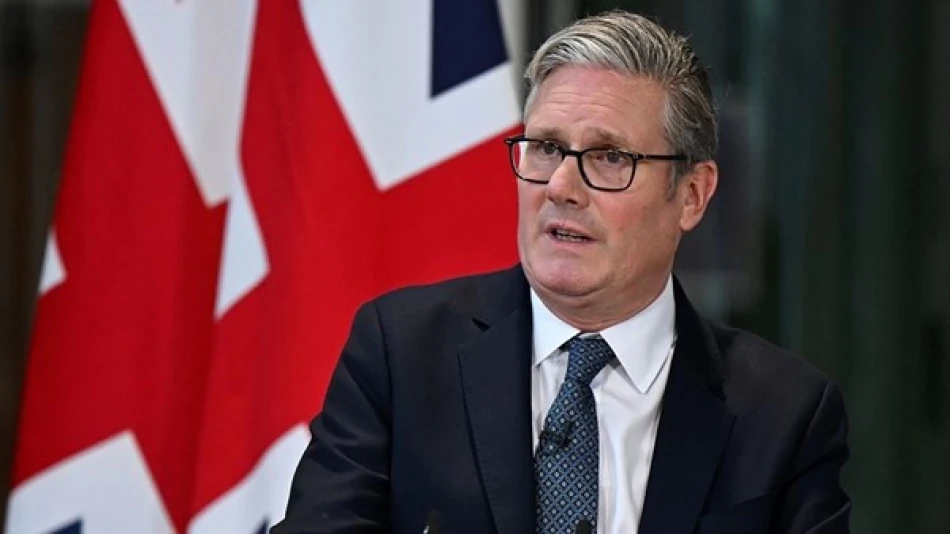
Unwavering UK Support for Ukraine, Trump Told by Starmer
Starmer Draws Red Lines Ahead of Trump-Putin Alaska Summit
British Prime Minister Keir Starmer has delivered a firm message to President Donald Trump and European leaders that the UK's support for Ukraine remains unwavering, demanding robust security guarantees in any potential peace deal with Russia. The coordinated diplomatic push comes just days before Trump's scheduled meeting with Vladimir Putin in Alaska, signaling Western attempts to shape negotiations before they begin.
Britain Takes Diplomatic Lead as Peace Talks Loom
In a high-stakes conference call that included Ukrainian President Volodymyr Zelensky and leaders from France, Germany, Italy, Poland, Finland, NATO, and the European Union, Starmer outlined Britain's non-negotiable position. According to his office, the Prime Minister emphasized that "international borders must not be changed by force" and that Ukraine must receive "strong and credible security guarantees to defend its territorial integrity within any agreement."
The timing of this diplomatic coordination reflects growing anxiety among European allies about potential concessions Trump might make to Putin. Unlike his predecessor's more cautious approach, Starmer appears determined to position Britain as a leading voice in shaping any Ukraine settlement.
Strategic Implications of Pre-Summit Messaging
Testing Trump's Commitment to Allies
Starmer's public declaration serves multiple strategic purposes. First, it establishes clear expectations for Trump before he sits down with Putin, making it politically costly for the US President to agree to terms that fall short of allied positions. This approach mirrors successful diplomatic pressure campaigns during previous US-Russia negotiations, where coordinated European messaging helped maintain Western unity.
Ukraine's Security Architecture Challenge
The emphasis on "strong and credible security guarantees" highlights the central dilemma of any peace agreement. Historical precedent suggests that paper promises without enforcement mechanisms—like the 1994 Budapest Memorandum—prove worthless when tested. Starmer's language implies Britain expects concrete commitments, potentially including NATO membership pathways or multilateral defense treaties with teeth.
European Unity Under Pressure
The broad coalition represented in Friday's call demonstrates European determination to present a united front, despite varying national interests. Poland and Finland bring direct security concerns as NATO's eastern flank, while Germany and Italy balance economic considerations with security imperatives. France's participation signals President Macron's continued engagement despite domestic political turbulence.
This coordination effort recalls successful European diplomacy during the 2014-2015 Minsk negotiations, where sustained pressure helped secure better terms than Russia initially offered. However, the ultimate failure of those agreements underscores why Starmer emphasizes credible enforcement mechanisms this time.
Market and Geopolitical Implications
Financial markets are closely watching these diplomatic maneuvers, with European defense stocks rising on expectations of sustained military spending regardless of peace talks. Energy markets remain volatile as investors weigh the possibility of sanctions relief against continued supply disruptions.
For NATO, Starmer's position reinforces the alliance's Article 5 commitments while testing its expansion boundaries. Any peace deal that leaves Ukraine outside formal security structures could create a dangerous precedent for other disputed territories, from the Baltics to the South China Sea.
The Alaska summit's outcome will likely determine whether this coordinated European pressure campaign succeeds in constraining Trump's negotiating flexibility or whether the US President chooses to prioritize bilateral relations with Putin over allied consensus.
Most Viewed News

 Layla Al Mansoori
Layla Al Mansoori






